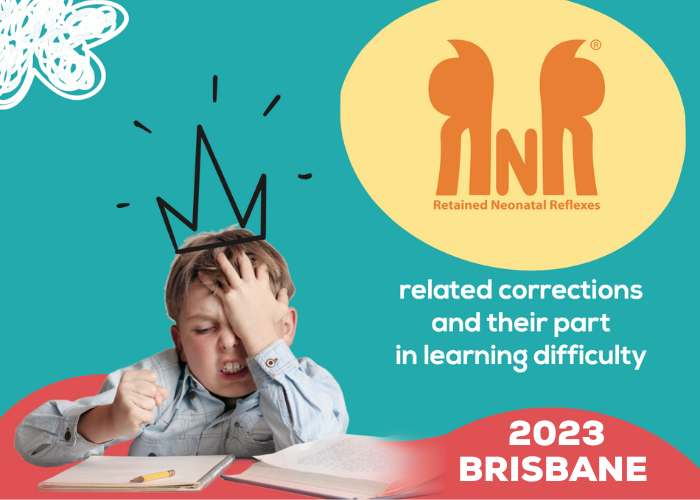Events
RNRs Seminar Part 1 - 2023 BRISBANE
Saturday, 5 Aug 2023 - Sunday, 6 Aug 2023
8:00am - 5:00pm
Thanks for your interest in the RNRs. It’s great to know you’re keen to better understand early brain development. Whether your patient is young or old, some basic procedures can be utilised to assist the integration of retained, or regained, neonatal reflexes. The ‘corrections’ are quick and easily included in your standard appointment schedule.
The full course is held over two 2 weekends. Part 1 (5-6 August 2023) & Part 2 (9-10 September 2023) make up the course. This seminar registration fee is for the first weekend only. You will need to register for both Part 1 & 2 separately.
NOTE: Registration is limited to those who have completed the AK Certification Course. It’s okay to attend if you have not sat the exam.
Dr Susan Walker and Dr Trent Banks will teach you how to:
๏ Perform structural corrections to assist RNR integration. Cranial and standard spinal adjusting methods are used.
๏ Identify and explain each of the retained neonatal reflexes
๏ Assess the neurology and biochemistry of the neurotransmitters associated with each RNR and give you the tools to test for and support your patients’ neurochemistry.
What is Included?
๏ Two comprehensive manuals covering 18 RNR procedures. The second manual will be given at Seminar 2 on the second weekend.
๏ Manual 1 & 2 are given at the respective seminars only to those attending
๏ Morning tea, lunch, & afternoon tea each day
๏ Online teaching resources for pre-seminar learning.
Download this PDF for accommodation options and seminar location information.
RNR Location Accommodation 2023
What is a retained neonatal reflex?
In the womb and in early life, when the decision making process has not fully developed, your brainstem has several reflexes called ‘primitive’ or ‘neonatal’ reflexes. They help you to grow properly and safely. For example, they help you in the birthing process, breast feeding and gripping onto things. As you mature these reflexes are no longer needed so they take a ‘back seat’ and the higher brain takes control. This is an essential and normal stage of your development, allowing you to perform the more complex tasks required in classroom learning, movement control and social interactions. However, due to birth trauma or development restrictions these reflexes might remain dominant. This means that your nervous system will automatically react inappropriately and undesirably in certain situations. This will adversely affect your development, learning and behaviour. This is a Retained Neonatal Reflex.
Event Location
Kedron-Wavell RSL21 Kittyhawk Drive
CHERMSIDE, Qld, 4032



